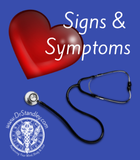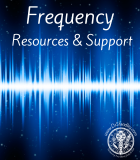
|

|
|
|
 |
|||||
QUIZ YOURSELF ON VARIOUS HEALTH TOPICS! CLICK HERE!
Click here to contact me with questions about your laboratory results - I do not volley e-mails back and forth because it is just too time consuming to keep track of who is responding to what e-mail. If you have a health question, please read about Signs and Symptoms before our conversation. This is a brief summary of lab value interpretation and is not intended in any way to be comprehensive or replace any conversation of your results with your doctor.
A TSH (Thyroid Stimulating Hormoone) Test is performed to assess the activity of the thyroid gland. It involves measuring the concentration of thyroid-stimulating hormone (TSH) in the blood serum. TSH is secreted by the pituitary gland and stimulates the thyroid gland to produce hormones. A change in the level of TSH in the blood may signify a malfunctioning of the thyroid gland. THYROXINE (T4) - Increased levels are found in hyperthyroidism, acute thyroiditis, and hepatitis. Low levels can be found in Cretinism, hypothyroidism, cirrhosis, malnutrition, and chronic thyroiditis. This is a measurement of the total thyroxine in the serum, including both the physiologically active (free) form, and the inactive form bound to thyroxine-binding globulin (TBG). It is increased in hyperthyroidism and in euthyroid states characterized by increased TBG. Occasionally, hyperthyroidism will not be manifested by elevation of T4 (free or total), but only by elevation of T3 (triiodothyronine). Therefore, if thyrotoxicosis is clinically suspect, and T4 and FTI are normal, the test "T3 -RIA" is recommended (this is not the same test as "T3 uptake," which has nothing to do with the amount of T3 in the patient's serum). T4 is decreased in hypothyroidism and in euthyroid states characterized by decreased TBG. A separate test for "free T4" is available, but it is not usually necessary for the diagnosis of functional thyroid disorders Normal Adult Range: 4 - 11 mcg/dL Thyroxine-Binding Globulation (T3-UPTAKE) - Increased levels are found in hyperthyroidism, severe liver disease, metastatic malignancy, and pulmonary insufficiency. Decreased levels are found in hypothyroidism, normal pregnancy, and hyperestrogenis status. This test measures the amount of thyroxine-binding globulin (TBG) in the patient's serum. When TBG is increased, T3 uptake is decreased, and vice versa. T3 Uptake does not measure the level of T3 or T4 in serum. Increased T3 uptake (decreased TBG) in euthyroid patients is seen in chronic liver disease, protein-losing states, and with use of the following drugs: androgens, barbiturates, bishydroxycourmarin, chlorpropamide, corticosteroids, danazol, d-thyroxine, penicillin, phenylbutazone, valproic acid, and androgens. It is also seen in hyperthyroidism. Decreased T3 uptake (increased TBG) may occur due to the effects of exogenous estrogens (including oral contraceptives), pregnancy, acute hepatitis, and in genetically determined elevations of TBG. Drugs producing increased TBG include clofibrate, lithium, methimazole, phenothiazines, and propylthiouracil. Decreased T3 uptake may occur in hypothyroidism Normal Adult Range: 10 - 26 mcg/dL FREE T4 INDEX (T7) Normal Adult Range: 0.8 – 1.8 ng/dL TRIIODOTHYRONINE - T3 TOTAL Normal Adult Range: 75 - 220 ng/dL THYROID-STIMULATING HORMONE (TSH) - produced by the anterior pituitary gland, causes the release and distribution of stored thyroid hormones. When T4 and T3 are too high, TSH secretion decreases, when T4 and T3 are low, TSH secretion increases. Normal Adult Range: 0.5-5.0 miliIU/L
DISCLAIMER **This web site's goal is to provide you with information that may be useful in attaining optimal health. Nothing in it is meant as a prescription or as medical advice. You should check with your physician before implementing any changes in your exercise or lifestyle habits, especially if you have physical problems or are taking medications of any kind. |
| 314.420.5099 |
| Questions regarding this site: webmaster@drstandley.com |
| Copyright 1999-2026: Dr. Loretta J. Standley - All Rights Reserved. |































